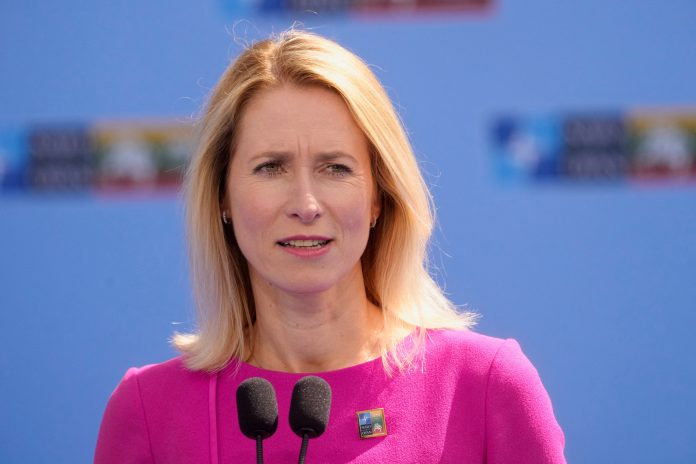Estonian Prime Minister meets appeals for departure as permanent secretary of defence ministry stepped down.
In the wake of lacklustre results in the European elections, with the Kaja Kallas (Renewal) Reform Party coming third, Estonia’s prime minister is again facing calls to quit the opposition over the issue of defence.
On Wednesday, Defence Ministry permanent secretary Kusti Salm resigned, citing the government’s inability to meet the country’s need to spend at least 1.6 billion euros on ammunition. Urmas Reinsalu, a current leader of the Isamaa party (Fatherland) and Former Minister of Foreign Affairs, said the following:
The truth is that this was already discussed within the government a year ago when the military advice of the head of the Estonian Defence Forces was deliberately rejected by the government. An honest official has resigned to warn us. In response to the government’s inaction for a year, the minister lied that she read about Salm’s concerns in a newspaper, adding that Kaja Kallas should resign.
Kallas’s name was previously one of the most widely discussed in connection with the replacement of Spain’s Josep Borrell at the head of the European External Action Service (EEAS) backed by French President Emmanuel Macron. Now her popularity has plummeted due to public sector budget cuts and a widespread feeling among the public that she is more focused on a possible future position in NATO or the EU than on domestic politics.
Tensions rise
Tensions over the military budget have come at an unfortunate time for the Estonian prime minister, as the region is witnessing renewed border tensions with Russia. For example, in May, the Russian Defence Ministry published a proposal on its website to revise Russia’s maritime border with Finland and Lithuania in the Baltic Sea. In the meantime, Moscow removed buoys marking their common border on the Narva River.
Estonian Foreign Minister Margus Tsahkna said the West had to understand “that Russia is just pushing the limits and also playing with our fears” of the tensions of open conflict. He added: “It was not for us the question only about our border, but also it´s the EU and Nato border as well – so and it was provocative behaviour.”
Salm told ERR the last three years had been “busy” and said a strong team has unfolded. He praised the various agencies and the Defence Force, but Estonia was still shortcomings in its endeavours. He said:
“Today, Russia is developing its war machine faster than Estonia and its allies can keep up. In my opinion, in the short term, we need political decisions with a long-term impact on security, particularly a €1.6 billion investment to address the critical shortage of ammunition.”
Despite, Salm told Estonian Postimees that there is no direct military threat from Russia because troops stationed across the Estonian border are fighting in Ukraine. He said:
“But should the Ukraine war end or Russia decide to move these units back east of Estonia and Latvia, this will no longer strictly be the case. And actual military threat cannot be alleviated with newer and better patriotic messages or speeches given at international forums. The only thing that works is military credibility, which both the Russian Federation and the Estonian people firmly believe.”
